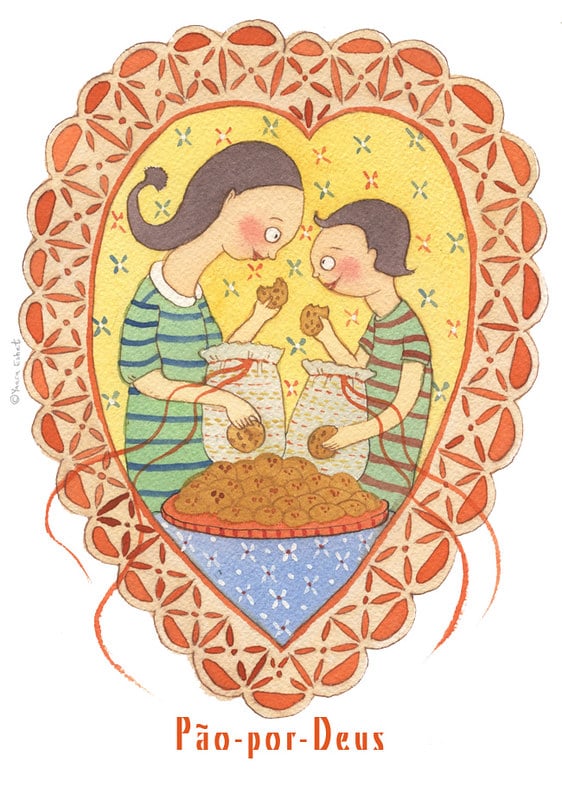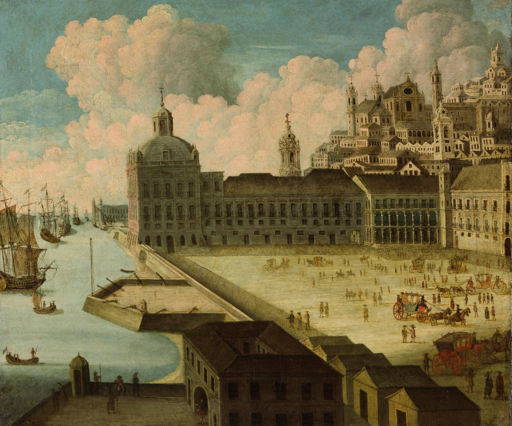November 1st, All Saints’ Day, is a deeply significant national holiday in Portugal dedicated to honoring the saints and the memory of the deceased. The origins of All Saints’ Day are not fully documented, but it has been celebrated in various forms for centuries in Catholic-majority nations. Let’s look at Portugal’s customs and traditions that take place year after year on All Saints’ Day.
Commemorating the Departed
On All Saints’ Day, families across Portugal gather to remember loved ones who have passed on. The day often begins with religious services at local churches, where special masses are held to honor the dead and celebrate the lives of saints who serve as spiritual guides in the Catholic faith. After the masses, many families head to cemeteries, bringing candles and flowers, particularly chrysanthemums, to decorate the graves of family members. This tradition not only pays respect to the deceased but also serves as a reminder of the strong familial bonds and the importance of legacy in Portuguese culture.
The “Bread for God’s Sake” Tradition
One of Portugal’s most endearing customs on All Saints’ Day is the “Pão-por-Deus” (Bread for God’s Sake), a tradition observed by children typically up to age 10 but sometimes older. Dating back to the 15th century, this ritual involves groups of children walking through their neighborhoods early in the morning, often around 8 or 9 a.m., knocking on doors and visiting local shops. The children, carrying small bags, greet neighbors with the phrase “Pão-por-Deus” in exchange for small treats or gifts, such as broas (small bread-like cakes made with anise and nuts), chocolates, candies, nuts, fruit, or, on occasion, a bit of money.
In local shops, the offerings can be unique. Bakers might give fresh bread; fruit sellers may offer chestnuts, and other store owners sometimes hand out small samples of their goods. In the Azores, this custom takes on a special twist: children receive a cake called “caspiada,” shaped to resemble the top of a skull. This emphasizes the connection to honoring the deceased.
The origins of Pão-por-Deus are rooted in the historical practice of giving “soulmass-cakes” to the poor on All Saints’ Day, which symbolizes an offering for the dead. This connection became especially poignant after the Great Lisbon Earthquake of 1755. Following the tragedy, which struck on November 1 and left countless residents of Lisbon homeless and destitute, survivors turned to neighboring towns, asking for bread in a form of collective plea known as “Pão-por-Deus.” This act of seeking sustenance became embedded in the national memory, reinforcing the significance of the tradition.
Today, Pão-por-Deus is a celebration that strengthens community bonds and reminds Portuguese families of the importance of generosity and shared remembrance passed down through the generations.

A Day of Resilience: Remembering the 1755 Lisbon Earthquake
While All Saints’ Day is primarily focused on honoring the dead, it also carries a more profound memory tied to Portugal’s history of resilience. On November 1, 1755, a massive earthquake devastated Lisbon, followed by a tsunami and fires that left the city in ruins. Striking mid-morning, during All Saints’ Day services, the disaster caused immense loss of life, particularly in churches where congregations had gathered for the holiday. With an estimated magnitude of over 8.5, the earthquake’s impact was felt throughout Portugal and reshaped the country’s architectural landscape. Forever after, All Saints’ Day became associated with vulnerability and strength in the face of calamity.
This tragic event, one of the deadliest earthquakes in history, transformed Lisbon and became a defining moment in Portuguese history. It influenced urban planning and architecture, with the rebuilding of Lisbon featuring designs intended to better withstand future quakes. The memory of this day serves as a reminder of Portugal’s resilience and unity. These qualities remain an essential part of the national identity.

A Time for Reflection and Connection
November 1st in Portugal is a day of spiritual connection, community, and introspection. Families bond as they share stories of ancestors and recall virtues and lives that shaped them. Through the quiet moments in church, children gathering treats, and the solemn visits to cemeteries, All Saints’ Day in Portugal is a powerful expression of remembrance. It reminds the Portuguese people of the strength and continuity that binds them through faith, history, and community.


